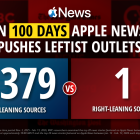Facebook declared it would remove any content that might bring legal controversy or government regulation to the platform.
Facebook has announced new Terms of Service. The platform’s new rules will allow it to “remove or restrict access to your content, services or information if we determine that doing so is reasonably necessary to avoid or mitigate adverse legal or regulatory impacts to Facebook.” Facebook also encouraged users to “report content or conduct that you believe violates your rights (including intellectual property rights) or our terms and policies.” Facebook said these rules will take effect October 1, 2020.

Facebook acknowledged: “If we remove content that you have shared in violation of our Community Standards, we’ll let you know and explain any options you have to request another review.”
The exceptions to this however, are worrisome. The platform explained that there will be no recourse if users “seriously or repeatedly violate these Terms, or if doing so may expose us or others to legal liability; harm our community of users; compromise or interfere with the integrity or operation of any of our services, systems or Products; where we are restricted due to technical limitations; or where we are prohibited from doing so for legal reasons.”
Facebook choosing to crack down on content its moderators suspect will inspire regulation has vague, but massive implications for the platform’s future. As it is, Facebook has already unleashed AI programs to scan Facebook for hate speech. The recent Community Standard Enforcement Report’s Hate Speech tab, explained how “proactive detection technology” had ramped up Facebook’s ability to restrict content before it circulates, citing that “Content actioned increased from 5.7 million pieces of content in Q4 2019 to 9.6 million in Q1 2020.”
Conservatives are under attack. Contact the FCC at 1-888-225-5322 and/or via the MRC’s FCC contact form to give your take on the petition filed by the Department of Commerce regarding Section 230 of the Communications Decency Act of 1996. Demand that Big Tech be held to account to mirror the First Amendment while providing transparency, clarity on “hate speech” and equal footing for conservatives.









